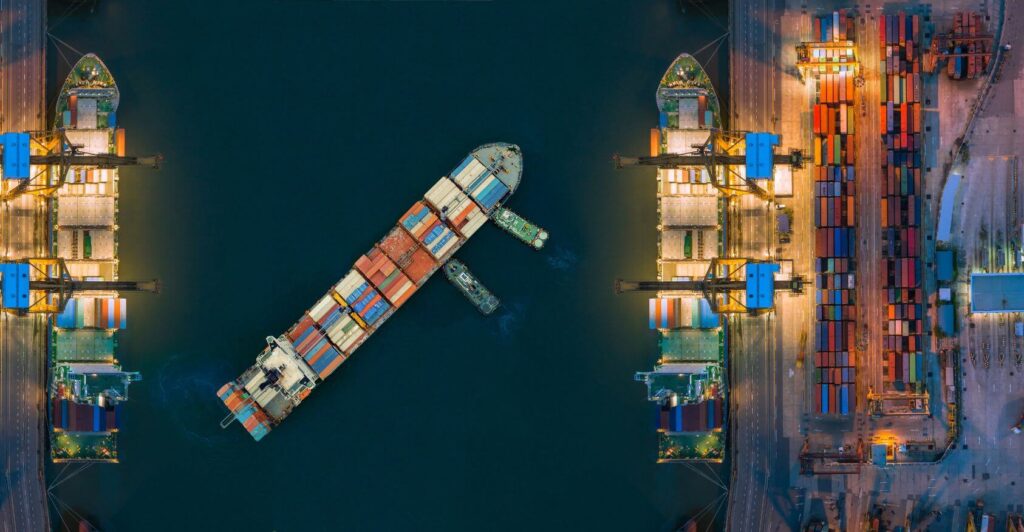Supply Chain Expert Sarah Turner discusses in her latest blog post how leveraging AI can optimize your supply chain and enhance operational efficiency. Read the full article to discover actionable insights that can transform your business.
In the modern business landscape, the supply chain is one of the most critical components of an organization’s success. It encompasses all the activities involved in the production and delivery of goods and services, from sourcing raw materials to distributing finished products to customers. As such, optimizing the supply chain is crucial for improving operational efficiency, reducing costs, and enhancing customer satisfaction.
One of the most promising tools for supply chain optimization is artificial intelligence (AI). AI refers to the simulation of human intelligence in machines programmed to think like humans and mimic their actions. In the context of the supply chain, AI-powered optimization involves using advanced algorithms and machine learning techniques to analyze data, identify patterns, and make intelligent decisions to optimize various aspects of the supply chain.
In this blog post, we will discuss the role of AI in supply chain optimization, the benefits of AI-powered optimization, and how to implement AI-powered optimization in your supply chain.
“Implementing AI in the supply chain means you're proactive and aware of the potential efficiencies,” says Sarah Turner, Supply Chain Expert at Cognixor.”
The Role of AI in Supply Chain Optimization
The supply chain is a complex network of interconnected activities and processes. As such, there are numerous opportunities for AI to be applied to optimize various aspects of the supply chain:
- Demand Forecasting: Accurate demand forecasting is crucial for optimizing inventory levels, production schedules, and distribution plans. AI algorithms can analyze historical sales data, market trends, and other relevant factors to make more accurate demand forecasts.
- Inventory Management: AI-powered optimization algorithms can help optimize inventory levels by analyzing historical data, current inventory levels, and demand forecasts to determine the optimal amount of inventory to hold at each location in the supply chain.
- Transportation Optimization: AI algorithms can analyze historical transportation data, current traffic conditions, and other relevant factors to optimize transportation routes and schedules, reducing transportation costs and delivery times.
- Supplier Relationship Management: AI-powered optimization algorithms can help optimize supplier relationships by analyzing historical supplier performance data, current market conditions, and other relevant factors to determine the optimal suppliers to work with.
Benefits of AI-Powered Optimization
Implementing AI-powered optimization in your supply chain can provide several benefits:
Cost Reduction: By optimizing various aspects of the supply chain, such as inventory levels, transportation routes, and supplier relationships, you can significantly reduce operational costs.
Enhanced Performance: AI-powered optimization can help improve the performance of your supply chain by reducing lead times, improving service levels, and enhancing customer satisfaction.
Informed Decision-Making: AI algorithms can analyze vast amounts of data to provide actionable insights and recommendations, enabling you to make more informed decisions.
Scalability: As your business grows, the complexity of your supply chain increases. AI-powered optimization algorithms can scale with your business, ensuring that your supply chain remains optimized as your operations expand.

How to Implement AI-Powered Optimization in Your Supply Chain
Implementing AI-powered optimization in your supply chain involves several steps:
Data Collection: The first step in implementing AI-powered optimization is to collect the relevant data. This includes historical sales data, inventory levels, transportation data, supplier performance data, and other relevant information.
Data Cleaning and Preparation: Once you have collected the necessary data, it must be cleaned and prepared for analysis. This involves removing any inaccuracies or inconsistencies in the data and formatting it in a way that can be easily analyzed by the AI algorithms.
Algorithm Development: Next, you will need to develop the AI algorithms that will be used to optimize your supply chain. This involves selecting the appropriate machine learning techniques and training the algorithms on your data.
Algorithm Testing: Once the algorithms have been developed, they must be tested to ensure that they are providing accurate and actionable recommendations. This involves running the algorithms on a test dataset and comparing the recommendations to actual outcomes.
Algorithm Implementation: Once the algorithms have been tested and validated, they can be implemented in your supply chain. This involves integrating the algorithms into your existing systems and processes.
Continuous Improvement: Finally, it is important to continuously monitor the performance of the AI algorithms and make any necessary adjustments to ensure that they continue to provide accurate and actionable recommendations.
Conclusion
AI-powered optimization is a powerful tool for improving the efficiency and performance of your supply chain. By implementing AI algorithms that can analyze data, identify patterns, and make intelligent decisions, you can optimize various aspects of your supply chain, resulting in cost savings, enhanced performance, and more informed decision-making.
While implementing AI-powered optimization in your supply chain may seem like a daunting task, it is a worthwhile investment that can provide significant benefits for your organization. By following the steps outlined in this blog post and working with a seasoned expert in AI and supply chain optimization, you can successfully implement AI-powered optimization in your supply chain and unlock its full potential.
If you are interested in learning more about AI-powered optimization or would like to schedule a free consultation with one of our seasoned experts, please contact us today. We are here to help you empower your supply chain with AI.